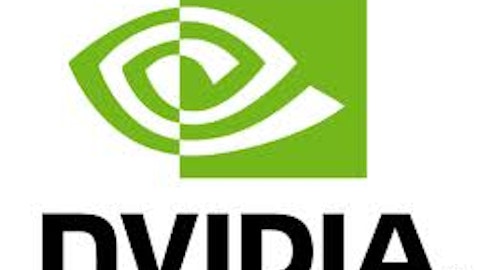The upswing in the usage of smartphones and tablets has taken the “Global Digital Advertising” industry to a different paradigm. According to the research firm eMarketer, global digital advertising spending for 2012 totaled $100 billion, and is expected to increase 15% in 2013.
In this article, I have picked up three players Yahoo! Inc. (NASDAQ:YHOO), Baidu.com, Inc. (ADR) (NASDAQ:BIDU) and AOL, Inc. (NYSE:AOL) that have benefited in the past by the Digital Ad industry and are strategically placed to monetize this upsurge in digital ad spending. I am analyzing these stocks on the basis of how they have performed in the last quarters and what could be their future endeavors.
Yahoo! Inc. (NASDAQ:YHOO)
The company’s 4Q12 results gave me mixed feelings. Sales from the Display ad segment continued to contract, as it fell by ~5% y/y. On the other hand, its revenue was up by ~4% y/y because of the rise in search and other revenues. Moving into the future, I don’t see a massive upside in this stock, although the deal with Google Inc (NASDAQ:GOOG) and the positives of Yahoo Japan’s valuation may give some tailwinds to it.
With the latest deal between Yahoo and Google, the company has entered into a non-exclusive agreement with Google to display ads on Yahoo properties across the desktop and mobile platforms. The ads will be displayed using Google’s AdSense for Content and AdMob services. I see two benefits from this deal. One, the partnership essentially makes Yahoo a large publisher for Google’s content network; and secondly, it should help it in improving the monetization ability of its class two display inventory. The effect of this partnership will show results in 2Q13. However, I don’t think it is going to have any major value impact for the company as it has the potential to add only ~$24 million to Yahoo’s net Display revenue. However, the deepening relationship between the two Internet and digital Media companies raises the possibility of Google replacing Microsoft to manage Yahoo’s search ad business.
On the other side, recently Yahoo Japan released its earnings covering the December quarter. Since then, its stock price has seen more than a 30% hike. The market-based pricing for Yahoo Japan, an asset in which the company holds ~35% stake; will help Yahoo to post stronger balance sheet. However, the weakening position of the Yen will reduce the overall value of the investment.
Hence, even though the Google deal and investment in Yahoo Japan will have positive financial impact on Yahoo, but an extraordinary price rise cannot be expected from the stock. Keeping this in mind, I don’t see an investing opportunity in this stock for now.
Baidu.com, Inc. (ADR) (NASDAQ:BIDU)
When a company holds ~79% share in a country’s PC search market, the investor’s expectation from the quarterly results don’t work the same way as they do for other internet companies. Same thing happened to Baidu when its stock price fell ~10% after the declaration of its 4Q12 results. The company’s operating margin for the period was ~46% which was ~14% lesser than its last quarter’s margin. Also, this was the lowest profit increase since 2009. The key reasons for decrease in the profitability were:
1. Operational loss of iQiyi: The one-month consolidation after iQiyi’s acquisition negatively affected margins. Although it contributed in increasing the total revenue, the operating loss from iQiyi was ~$10 million for December, 2012.
2. Higher TAC and selling cost: Traffic acquisition costs (TAC) increased to 9.6%. Selling costs were up due to the increasing hao123 promotional traffic and the continued aggressive push on mobile distribution channel fees for its mobile apps installation.
Baidu’s target for the next 12 months is to increase traffic for both short-term and long-term purposes. However, I see 2 hurdles in it. In the short-term Baidu will face stiff competition from Qihoo 360 Technology Co Ltd (NYSE:QIHU) that captured ~6% traffic from the company. Long-term pressure on traffic is likely anticipated from the usage shift from PC to mobile. According to the CNZZ’s report, China’s PC traffic dropped in 4Q12 due to the mobile Internet competition. I expect that this shift will affect the profitability of the company as mobile monetization involves less ad inventory and lower cost-per-click rates.






